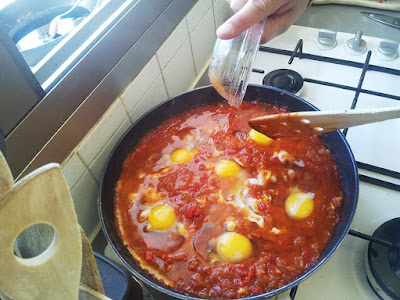Thing You Ought To Know About Israel Cooking And Cousins
Israel is home to an extremely differed and different cooking. This is on the grounds that outsiders from everywhere throughout the world have presented formulas, there are obviously customary Jewish formulas, and Arab impacts have been retained as well. Israeli food can be extensively separated into two primary classes: Israeli-Mizrahi cooking, which is affected by Arab food, and conventional Israeli cooking, which is impacted by the different nations from which Jews moved to Israel, and incorporates Ashkenazi, North African, Balkan, Yemenite, Iraqi and North American dishes, albeit numerous dishes have picked up fame outside their unique ethnic beginning.
Some Israeli dishes include:
• Israeli plate of mixed greens - Finely diced tomatoes and cucumbers, dressed with lemon juice and olive oil.
• Matbucha - A serving of mixed greens produced using tomatoes, simmered peppers, oil and garlic, which are cooked together and after that permitted to cool.
• Labneh - Yogurt stressed to evacuate the way.
• Skhug, otherwise called "Kharif" - A hot plunge/sauce, initially from Yemen. The plunge is produced using new hot peppers, coriander, garlic, and flavors. There are a few variations including skhugadom (red skhug, produced using red peppers), skhugyarok (green skhug made green peppers), and skhug pal (dark colored skhug, made utilizing green peppers and tomatoes).
• Jachnun - Rolled mixture, gradually heated overnight, and eaten with tomato plunge, hard bubbled eggs, and skhug.
• Shakshouka - Eggs, tomatoes, onions, and garlic. Normally eaten with pita bread.
• Shawarma - The Israeli form of doner kebab. Presented with bread and serving of mixed greens, and hummus or french fries.
• Malawach - A thin bread made of numerous layers, like a crêpe.
• Kibbeh - Ground (minced) meat, flour, and flavors, fricasseed.
• Falafel - Balls or patties produced using fava beans or chickpeas, and fricasseed.
• Sambusac - Small triangular fricasseed baked goods, containing different exquisite fillings.
• Bourekas - Savory baked goods.
Israel in an interesting blend of old and new, east and west. No place will this be more clear to you while on your cooking get-away than when you stroll through any urban high road. Here, close by creator shops, gigantic stores, and fast food chains, you can at present discover "gap in the divider" shops where a shoemaker sits and repairs shoes and shoes or a needleworker will supplant a zipper or retouch a tore skirt while you pause. You will likewise locate the Israeli variant of the little market or "makolet." No cooking excursion in Israel would be finished without encountering some of these stunning private ventures.
When you push open the entryway, you are transported a long time back in time. Inside a modest space, heaped high on racks and stacked in each corner, you will locate an astounding assortment of stock. It can be confounding, where do you begin, in what capacity would you be able to ever discover anything, is there no request to the chaos? Simply ask the businessperson and he will discover what you require in a flash. Some of these stores are certified general stores where you can purchase everything from a crate of grain to a bundle of pastrami, cleanser and candles, desserts and welcome cards.



Comments
Post a Comment